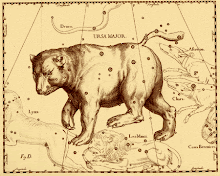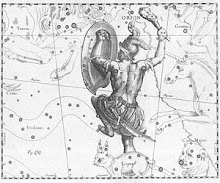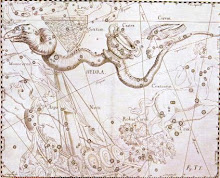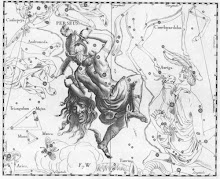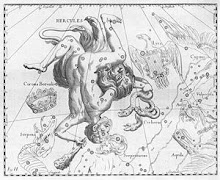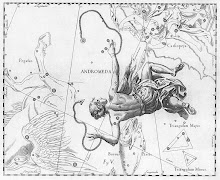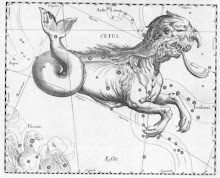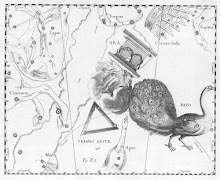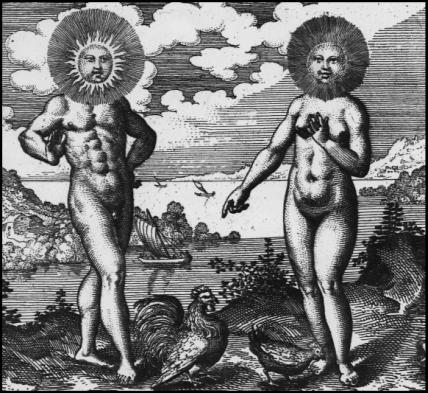Affichage des articles dont le libellé est CREMER The Testament of Cremer. Afficher tous les articles
Affichage des articles dont le libellé est CREMER The Testament of Cremer. Afficher tous les articles
CREMER The Testament of Cremer
THE TESTAMENT OF CREMER,
ABBOT OF WESTMINSTER. AND BROTHER OF THE
BENEDICTINE ORDER.
(From The Hermetic Museum, Vol. II, by Arthur Edward Waite, 1893)
I HAVE attempted to give a full and accurate account of Alchemy without using any of those obscure technical terms, which have proved so serious a stumbling-block in the way of many students of this Art. I am here describing my own experience during the thirty years which I spent and wasted in perusing the writings of authors whose whole ingenuity seemed to have been concentrated upon the Art of expressing thought in unintelligible language. The more I read the more hopelessly I went astray, until Divine Providence at length prompted me to undertake a journey to Italy, and caused me to be accepted as a disciple by that noble and marvellously learned Master Raymond, with whom I remained for a long time. In his eyes I found such favour that he not only unfolded to me a partial knowledge of this Great Mystery, but at my most earnest entreaty, accompanied me to this island of England, and lived with me here two years. During his stay he thoroughly instructed me in the whole secret of the work. Subsequently, I introduced my noble master to his most gracious Majesty King Edward, who received him kindly and honourably, and obtained from him a promise of inexhaustible wealth, on condition that he (the King) should in person conduct a Crusade against the Turks, the enemies of God, and that he should thenceforward refrain from making war on other Christian nations. But, alas, this promise was never fulfilled, because the King grossly violated his part of the contract, and compelled my dear master to fly beyond the seas, with sorrow and grief in his soul. My heart still burns within me when I think of the unjust treatment which he received, and I have no more earnest longing than once more to behold his bodily presence. For the model of his daily life, and the purity and integrity of his mind, would move the most inveterate sinner to repentance.
In the meantime, rest assured, most blessed Raymond, that I and my brethren day by day pour out our prayers before God on your behalf. All wisdom is derived from God, and ever ends in Him. Any one who desires knowledge should ask it of Him, for he gives liberally, and without upbraiding. The height and the depth of all knowledge, and the whole treasure of wisdom are given unto men of God, because in Him, and to Him, and through Him are all things, and nothing can happen without His will. In beginning my discourse I invoke the help of Him Who is the source and origin of all good things. May the bright light of His Spirit shine in my heart, and guide me into all truth; also enabling me to point out to others the true path of Knowledge! May this prayer be granted by Him who is enthroned on High, and rules and governs all things, world without end! Amen.
"In the Beginning was the Word full of grace and truth."
Prayer
Holy Lord, Almighty Father, Eternal God, deign to bless and sanctify the fire which we unworthy men, by invocation of Thy only-begotten Son our Lord Jesus Christ, presume to bless. Hallow it, most gracious God, with Thy benediction, and let it tend to the good of the human race, through our Lord Jesus Christ.
Good Lord, Creator of the Red Light,
Who dividest the times by certain seasons,
When the Sun vanishes, fearful Chaos comes again:
Oh Christ, restore the light to Thy faithful people!
Though Thou hast studded heaven's floor with stars,
And inlaid it with the bright lamp of the Moon,
Yet Thou dost teach us also to strike light out of flints,
And to fan it into life out of the stone-born spark.
Thou art the true light of the eyes, and the light of the senses;
A mirror Thou art of things without and of things within.
Accept this light which I bear, ministering,
Tinged with the unction issued from the peace-bearing virgin.
To Thee we come, great Father, thro’ Thine only Son,
In whom Thy glory visibly shines forth,
And through Him, the Blessed Comforter,
Whom Thou didst send forth from Thy great heart.
In whom Thy Brightness, Honour, Light, and Wisdom,
Majesty, Goodness, and Mercy
Dwell with us throughout the Ages,
And draw us up to the Fountain of Light. Amen.
CHAPTER I
How to prepare the living water which constitutes the life of our Art.
Take three oz. of tartar of good claret, strong and pure. Add to it five oz. of Petroleum, two oz. of living sulphur, two oz. of orange-coloured Arsenic, three oz. of Rabusenum, two oz. of willow charcoal. Mix and distil all these ingredients in the "Bath of Neptune," in a well-stoppered glass jar. Let this jar be about one cubit high, and carefully closed to prevent any of the spirits or smoke from evaporating. When you see it turn of a pale colour, take it out of the furnace, and let it cool. You ought to be able to prepare it in about four days. Be careful not to inhale its smell, for it is deadly poison. This water should be kept in a stout well-stoppered glass jar, and used according to the directions given in the following chapters.
The other water should be twice distilled out of the urine of an unpolluted youth of eighteen; if he be polluted, the water will have no vitality.
CHAPTER II
Take the water of an unpolluted youth after his first sleep for three or four nights, until you have three pints. Put it each night into a well-stoppered stone jar; remove the sediment. Strain out one pint of the thinnest and purest part of the liquid. Add two glasses of very strong vinegar, two oz. of quicklime, half-an-ounce of the "living water," of which the preparation has been described above. Put the mixture into an earthen pot, and place over it an alembic or distilling vessel, rendered airtight with clay. Let it stand one day and one night before you put it on the fire. Then expose it to gentle heat, and let it distil continually for five or six days and nights. Thus let it flow by drops; carefully lute your glass receptacle so that neither spirit nor smoke may escape, and when the liquor distilling assumes a blue or pallid colour, then abstract nothing further.
CHAPTER III
Smelt eight oz. of clear, hard iron ore, having no blemishes, in three or four parts, over a fierce charcoal fire; extinguish it with so much of the Virgin water described in the second chapter as may be necessary for the purpose. Then take three oz. of tin, heat it for a short time in the fire, and steep it in the Virgin water. Pound the iron ore and the tin very small on a marble tablet, and when it begins to cool feed it with some of the water aforesaid. Pour the whole into a narrow-necked glass bottle, and seal it up with lead. Put it in a safe place, and in October you should fill a water-tight box (about one yard in height) with fresh horse dung, and thrust your glass vessel into it. Next to the bottle let there be a layer of unslaked quick-lime. Shut the lid of the box closely, and never look at the mixture but at the time of the full moon. Its colours will continue to change until it becomes fixed and hardened. Then it is precipitated towards the bottom of the vessel. When it has been in the box twelve weeks, it should be quite black. You may then take it out, and keep it till the twentieth day of March, when it should be once more pounded small, according to the directions given below.
CHAPTER IV
About the fifteenth day of March take three oz. of quicksilver, and add to it half-an-oz. of "living water." Pass the quicksilver five times through a strainer purged with lye and well dried. Melt two pounds of lead, and pour it into a pot. When it becomes liquid, thrust into it a thin round skewer, and when the lead is still warm, but already fixed, remove the skewer, and pour in the quicksilver instead. When the whole mass has cooled turn it out on a slab of marble, pour some oil over it, pound it small, divide it into three parts, mix each with small pilules of soot. Leave them in a closely sealed vessel for eight days, stamp them to powder, and nourish this powder with a liquid compounded in equal proportions of vinegar and "Virgin water." Put the soft paste which must thus be formed into a high glass distilling vessel. Close up the upper part of the vessel with clay, and tie it up with a piece of leather or parchment. Then plunge it into a wooden box, containing glowing coals of juniper wood and oak, and a twentieth part of iron filings. To test the degree of the fire before inserting the vessel put in it a piece of dry paper. If it catches alight the fire is not too hot, but if the thin shreds which remain of the paper after burning are also consumed, then the heat is excessive, and the door must be opened till the temperature lowers; when it has become properly warm, carefully add to it a spoonful of "living water" (described in the first chapter). But take care that the still is only three-quarters covered with the coals, in order that you may, whenever the moon is full, be able quickly to remove the cover, and see how the work is progressing. Whenever you perform this, add a spoonful of "living water." At first the colour of the mixture should be black; afterwards it will become white, and will pass through various changes of colour. When the mixture turns solid or fixed, its colour should be red of a somewhat dark tinge, and it should also be saline and heavy, no longer flowing or bubbling up towards the top of the vessel. It ought to be treated in the manner suggested for forty weeks, beginning on the twenty-fifth of March. By the end of this period the mixture will have become so hard as to burst the vessel. When this happy event takes place, the whole house will be filled with a most wonderfully sweet fragrance; then will be the day of the Nativity of this most blessed Preparation. Remember, that the iron box with the coals ought to be enclosed in another wooden box, of which the object is to preserve the compound from the noxious influences of the air.
CHAPTER V
Take two pounds of pure and soft lead, two pounds of pure tin, and melt them in the above-mentioned well-covered clay jar. Place the whole on a wood fire, and keep it in a moderate blaze for three hours. Remove the "foam" of the metallic ore, till the whole mixture is pure and transparent, then add to it a fourth part of an ounce of the Red Stone powdered. Stir it gently with an iron spoon until the whole mass turns red. Leave the jar for seventy-two hours, and during the last three hours expose it once more to the gentle heat of a blazing wood fire. While it is still liquid you can mould it into any shape you please; when it hardens you have before your eyes the Consummation of the whole work. Mind you lift up your hands in grateful prayer to the Giver of all good gifts. So be it.
CHAPTER VI
How to prepare a fire proof clay jar in which to melt the metal.
Take well-tempered potter's clay, or the white earth which is called Taxonium; mix it with a tenth part of horse dung. When the jar has been formed, and is half dried, cover it with thin filings of red or caldarium copper and fine powder of red arsenic. When it is quite dry, smear all its lower part with saltpetre dissolved for twelve hours in the "living water" of our first chapter.
How to prepare the Clay.
Make the "clay" which you are to use for stopping up your vessel and keeping it air-tight, of bitumen, or quicklime mastic, and the white of eggs, well mixed with a little white Armenian bolus. Let your petroleum be clear, pure, and yellow. Your Rabusenum should be clear, and of a bright vermilion.
It is my wish that Brother Alexander, and Richard, of this our Monastery, should copy this Testament in the name of the Most Blessed Trinity, and preserve it carefully.
In the first place, let them diligently keep the secret from all greedy and nefarious persons, and reveal it to none but the Abbot and Prior, for the time being, of our Monastery. Nor should it be made known to them until they have sworn on the four Gospels that they will not reveal it to any men in power, or to any of the inferior brethren of our Monastery.
Moreover, it is my wish that the Art be not actually exercised in this our Monastery, except to save it from penury and ruin—a contingency which is not likely to happen, seeing that I leave to it so great a treasure of precious metals. I also enjoin upon you who are in authority in this house, to wit, the Abbot and Prior, to have this my last will and testament copied once in every sixty years, in order that it may not become illegible, either through the ravages of time, or through a change in the form of those written characters which render man's thought permanent.
Furthermore, I command you not to betray the secret of the preparation of the Red Dragon's Blood, or the quantities of substances required, or the manner of their treatment, or the time when the work should be taken in hand, to any human soul, except to the persons named above; and I adjure you to keep and preserve intact, inviolate, and unbroken the trust committed to you, in the Name of the Father, the Son, and the Holy Spirit, as you will one day have to answer me before the judgment seat of Christ. Whoever does not observe this my mandate, let his name be blotted out from the Book of Life.
Magnesia is the smelted ore of iron. When the mixture is still black it is called the Black Raven. As it turns white, it is named the Virgin's Milk, or the Bone of the Whale. In its red stage, it is the Red Lion. When it is blue, it is called the Blue Lion. When it is all colours, the Sages name it Rainbow. But the number of such names is legion: and I can only mention these few. Moreover, they were only invented for the purpose of confounding the vulgar, and hiding this mystery from the simple. Whenever you meet with a book full of these strange and outlandish terms and names, throw it aside at once: it will not teach you anything.
Rabusenum is a certain red substance and earth coming forth with water, which flows out of minerals, and is brought to perfection in the month of July in a glass jar exposed to the heat of the sun for 26 days.
Inscription à :
Commentaires (Atom)
LA LÉGENDE D'HIRAM
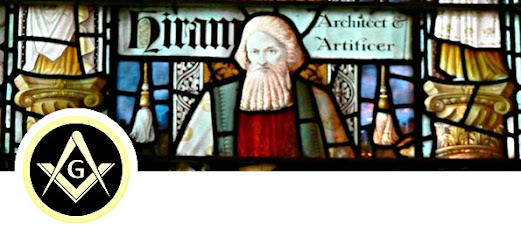
Articles les plus récents
LES SENTIERS D’HERMÈS








































